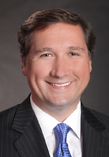© 2016 The Texas Lawbook.
By Mark Curriden
(Aug. 12) – Plaintiffs’ attorneys and corporate defense lawyers are normally sworn enemies in court, but Friday, a common concern thrust them together: their belief that prominent Dallas trial lawyer Bill Brewer should be sanctioned for improperly trying to influence jurors.

Three of the most influential legal organizations in Texas – the Texas Trial Lawyers Association, the Texas Association of Defense Counsel and the American Board of Trial Advocates – filed an unprecedented joint amicus brief Friday asking a state appellate court in Amarillo to uphold a trial judge’s ruling that Brewer committed misconduct when he and his firm conducted a so-called “push poll” weeks before a multimillion-dollar wrongful death case was set to go to trial.
“If such conduct is condoned, our civil justice system will be irreparably undermined and the trust the citizens have in the jury system will unnecessarily be eroded,” ABOTA Lead Counsel Brian Lauten wrote in the legal petition.

Legal experts say that the issue of whether “push polls” are permissible or whether it is jury tampering has never been decided by an appellate court in Texas.
Lawyers for Brewer, who is known for his Rambo-style litigation tactics, filed a petition in June with the state’s Seventh Court of Appeals in Amarillo seeking to have the sanctions reversed.
Brewer’s lawyers argue that that their client never intended to taint the jury pool, that the poll he commissioned was legally appropriate and that the judge used the wrong legal standard in issuing the sanctions. In addition, Brewer points out that his lawsuit settled before trial and no jurors were actually tainted.
Lubbock District Judge Rubin Reyes ruled in January that Brewer’s conduct was “unprofessional” and “unethical” when he hired a national research firm to contact hundreds of Lubbock area residents who were potential jurors in his upcoming wrongful death lawsuit, which was headed to trial.
Judge Reyes found that the questions in the poll “were designed to influence or alter the opinion or attitude of the person being polled.” The judge ruled that the questions were designed to shift blame for a gas explosion from Brewer’s client, Titeflex Corp., to those who installed the pipeline and to city employees in charge of inspections.
Judge Reyes fined Brewer $133,000 and ordered him to attend 10 hours of legal ethics training.
Brewers’ lawyers say the judge overstepped his legal authority and that no harm was ever done.
“This matter is now pending on appeal,” Vinson & Elkins partner George Kryder, who represents Brewer, said in a written statement. “We have great respect for Judge Reyes, but respectfully disagree with the prior findings of the court for the reasons urged in our brief.
“Mr. Brewer and his firm take seriously their professional responsibilities and ethical duties and the survey in question was fully consistent with Mr. Brewer’s ethical obligations and his duty to zealously represent his client,” Kryder said.
In the appeal, Kryder argues that, “The record is devoid of any evidence that the survey interfered with any function of the court. No jury was empaneled and, because the case was settled before trial, no jury venire was even summoned.
“There is no evidence that any jury member or even any venire member was contacted in connection with the jury survey,” Kryder argues.
Leaders at the state’s leading legal organizations disagree.
“The issues involved in this case go to the core foundation of our judicial system,” Lauten, a Dallas trial lawyer, wrote in the brief. “Nothing could be more central to the jury system – and Amici can imagine nothing that could be more poisonous to this ancient ideal than William A. Brewer’s behavior, as described by Judge Reyes in his order.”
The amicus brief states that, “Brewer’s conduct undermines the adversarial process, threatens the right of all parties to a fair and impartial jury, and damages the community’s confidence in a system where all parties have equal access to a fair hearing.
“If lawyers and the parties they represent are given unchecked power to conduct wide spread ‘push polls’ using false information calculated to steer the venire toward their theory of a pending case, the jury system is tainted and disputes cannot be fairly resolved,” the brief states.
“Lawyers from coast to coast are following this appeal: this Court must make a resounding statement that this conduct, even if pursued under the auspices of zealous advocacy, cannot be tolerated.”
The other lawyers who signed the amicus brief are Roger Hughes in Harlingen, Jeffrey Simon in Dallas, Guy Choate in San Angelo and David Chamberlain in Austin.
© 2016 The Texas Lawbook. Content of The Texas Lawbook is controlled and protected by specific licensing agreements with our subscribers and under federal copyright laws. Any distribution of this content without the consent of The Texas Lawbook is prohibited.
If you see any inaccuracy in any article in The Texas Lawbook, please contact us. Our goal is content that is 100% true and accurate. Thank you.
